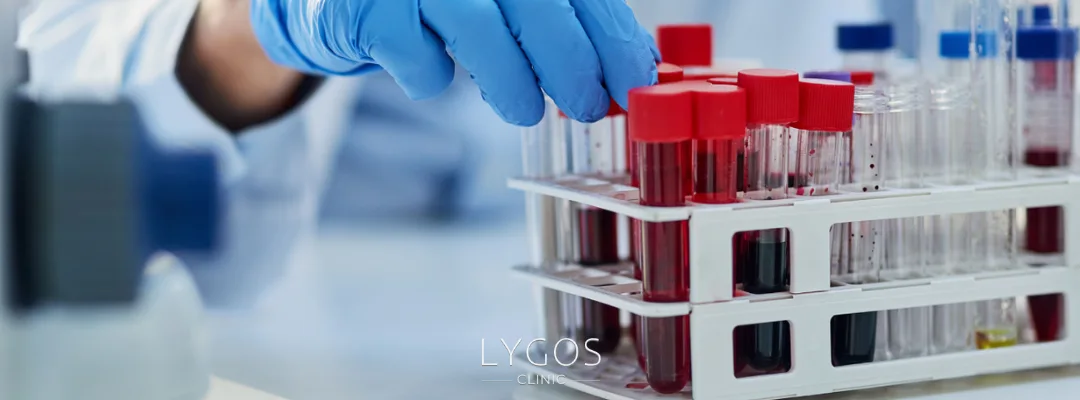Rectal Bleeding | Causes and Treatment Methods

Chose Your Topic
Rectal Bleeding
Blood from the anus is a common problem that many people face and is a health problem that often causes concern. This is sometimescan be caused by a simple ailment or more seriouscan also be a symptom of diseases. During defecation orblood coming from the anus area afterwards, in people of all ages can occur and can have various causes. Anal from hemorrhoidsfissures, colorectal cancer and digestive system disorders.
Many causes can lead to bleeding from the rectum. In this article, Rectal bleeding causes, symptoms, diagnosis and treatment of blood from the anus .We will examine the methods in detail. Bleeding correct identification of the source, early initiation of appropriate treatment is of utmost importance.

What is Rectal Bleeding?
Rectal bleeding refers to the presence of blood from the anus during or after bowel movements. It can be caused by various health issues, and sometimes it may indicate a simple problem. The color and amount of blood play a crucial role in identifying the source of the bleeding. If the blood is bright red, it is usually seen during bowel movements and suggests that the bleeding originates from a more superficial area, such as the anus or rectum. Darker or black blood, on the other hand, often indicates that the bleeding comes from deeper parts of the digestive system, such as the stomach or small intestine.
What Causes Rectal Bleeding?
There are many potential causes of rectal bleeding. The most common causes include:
- Hemorrhoids (Piles): Hemorrhoids are painful conditions caused by the swelling of veins around the anus. Bleeding during bowel movements is often seen with bright red blood and is the most common cause of rectal bleeding.
- Anal Fissures (Tears): Anal fissures are small tears in the skin around the anus. These tears can bleed during the passage of hard stools. Pain and bleeding often occur together in this case.
- Colorectal Cancer: Colorectal cancer can be one of the more serious causes of rectal bleeding. This bleeding is usually darker and may be accompanied by clots. In the early stages, colorectal cancer often does not cause noticeable symptoms, so any bleeding should be carefully monitored.
- Diverticulitis: Small pouches in the walls of the intestines can cause bleeding when they become infected or inflamed. This condition can also lead to rectal bleeding.
- Irritable Bowel Syndrome (IBS): IBS is a condition that affects bowel movements and can sometimes cause rectal bleeding, especially when accompanied by bloating, gas, and diarrhea.
- Gastritis and Stomach Ulcers: Stomach disorders can cause bleeding in the upper digestive tract, leading to blood in the stool.
What Are the Symptoms of Rectal Bleeding?
The symptoms of rectal bleeding typically appear during bowel movements. These may include:
- Bright Red Blood: When bleeding occurs during bowel movements, the blood is usually fresh and comes from a superficial source like hemorrhoids or anal fissures.
- Dark Red or Black Blood: This suggests that the bleeding is coming from a deeper part of the digestive system (such as the colon or stomach). This type of bleeding may indicate a more serious problem.
- Pain and Burning Sensation: Pain and a burning sensation often accompany bleeding caused by hemorrhoids and anal fissures.
- Fatigue and Dizziness After Bowel Movements: In cases of significant bleeding, symptoms of anemia (such as fatigue and dizziness) may occur, indicating that blood loss is affecting the body.
- Swelling During Bleeding: When hemorrhoids cause bleeding, swelling around the anus can occur, which can increase pain during bowel movements.

How is Rectal Bleeding Diagnosed?
To diagnose the cause of rectal bleeding, it is important to consult a healthcare professional. The following methods are commonly used for diagnosis:
- Digital Rectal Exam: This examination can detect swelling, hemorrhoids, or anal fissures in the anus area.
- Proctoscopy: In this procedure, the doctor examines the inside of the rectum to identify the source of the bleeding. Proctoscopy is especially useful for diagnosing issues in the rectum.
- Colonoscopy: Colonoscopy involves examining the entire colon and is a more comprehensive method for determining the source of rectal bleeding. It is usually recommended if the bleeding is severe or if there is a suspicion of colorectal cancer.
- Blood Tests: Blood tests can identify anemia caused by bleeding and can also help detect other infections or inflammation in the body.
- Fecal Occult Blood Test: This test detects hidden blood in the stool and can help identify bleeding from different parts of the digestive system.
How is Rectal Bleeding Treated?
Treatment for rectal bleeding depends on the underlying cause. Common treatment options include:
- Hemorrhoid Treatment: For hemorrhoids, treatment usually involves dietary changes, drinking plenty of water, and consuming high-fiber foods. Topical creams and suppositories can also be used. In severe cases, surgery may be required.
- Anal Fissure Treatment: Treatment for anal fissures includes warm baths, topical creams, and stool softeners. In cases where the fissures do not heal, surgical treatment may be needed.
- Colorectal Cancer Treatment: Treatment for colorectal cancer involves surgery, chemotherapy, and radiotherapy.
- Diverticulitis Treatment: Antibiotics are used to treat diverticulitis. In severe cases, surgery may be required.
- IBS Treatment: The treatment for IBS involves dietary changes, stress management, and medications.

How to Prevent Rectal Bleeding?
To prevent rectal bleeding, the following healthy habits can help:
- Eat Fiber-Rich Foods: Fiber helps regulate bowel movements and prevent constipation, which can prevent hemorrhoids and anal fissures.
- Drink Plenty of Water: Drinking enough water softens stool and helps prevent anal fissures.
- Exercise Regularly: Regular physical activity helps the digestive system function properly and can prevent constipation.
- Avoid Stress: Stress can negatively impact gut health. Avoiding stress can contribute to a healthier digestive system.
- Warm Baths: Warm baths can be soothing and helpful for hemorrhoids and anal fissures.
In conclusion, rectal bleeding can be concerning, but it is often treatable. Early diagnosis and appropriate treatment methods can resolve the problem. If rectal bleeding persists or if other symptoms appear, it is essential to consult a healthcare professional.
Rectal Bleeding Frequently Asked Questions (FAQ)
Rectal bleeding is generally not considered normal and should be taken seriously. However, the cause of the bleeding may be a simple issue (such as hemorrhoids or an anal fissure). If the bleeding persists or is severe, it is important to consult a doctor.
Rectal bleeding can be a sign of conditions such as hemorrhoids, anal fissures, colorectal cancer, diverticulitis, and irritable bowel syndrome (IBS). The color and amount of blood can help identify the source of the bleeding.
No, rectal bleeding can sometimes occur outside of bowel movements. For example, swelling or tears around the anus can cause bleeding.
Rectal bleeding can sometimes indicate a serious health issue, especially conditions like colorectal cancer. However, in most cases, it is caused by less serious conditions such as hemorrhoids or anal fissures. It is still important to consult a healthcare professional if the bleeding continues.
Bright red blood typically indicates that the bleeding is coming from the anus or rectum. Hemorrhoids and anal fissures are common causes of this type of bleeding. The bright red color suggests that the blood is coming from a more superficial source.


